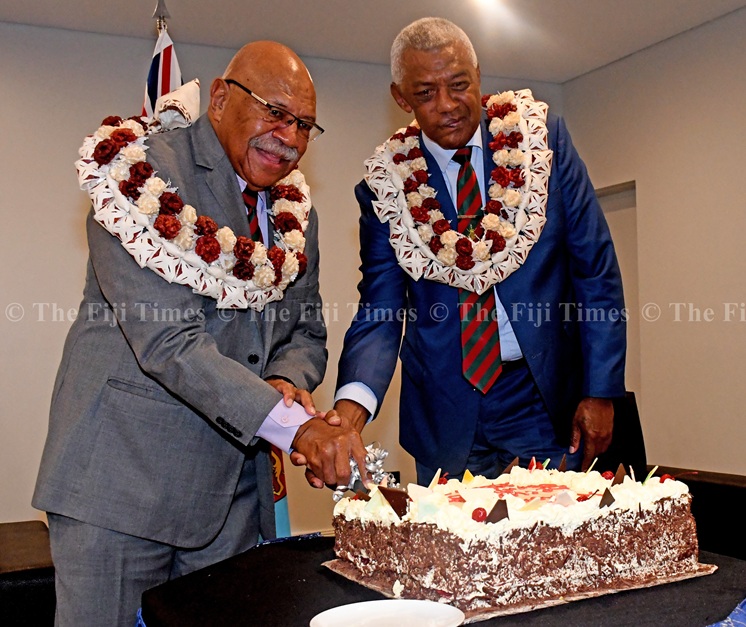The Government has officially strengthened the framework and policies around national security with the launch of Fiji’s National Security Strategy 2025–2029.
Prime Minister Sitiveni Rabuka, alongside the Minister for Defence, Pio Tikoduadua, unveiled the strategy yesterday, showing a coordinated approach to national security while ruling out the establishment of foreign military bases in Fiji.
Speaking to the media, Mr Rabuka addressed ongoing speculation about the possibility of a major or superpower setting up a military base in the country.
“The question has always been whether Fiji will entertain the establishment of a military base by one of the major or superpowers,” he said.
“And the answer to that I gave last week, and I maintain that, is that this government will not entertain that.”
While reaffirming Fiji’s position against hosting foreign bases, Mr Rabuka clarified that cooperation in infrastructure development and defence partnerships remains open.
“This does not rule out cooperation in building our national infrastructure.
“When we talk about building our ports and increasing capacity, those are not military installations.
“They can be used by military forces passing through the Pacific, and as a responsible member of international organisations like the United Nations and the International Maritime Organization, we are obliged to offer assistance to any navigator in our Exclusive Economic Zone (EEZ), including refuelling, water, and resupply.”
Mr Rabuka highlighted Fiji’s existing defence partnerships, including programs with New Zealand, Australia, the US, and regional allies, which he said would continue under the new strategy.
He also shared the importance of inter-agency coordination in implementing the national security strategy.
“We must all understand what is required from the national point of view, our personal and ministerial responsibilities, and ensure our agencies work in tandem.
“Our council or committee is tasked with keeping that coordination going at the highest level.”
The National Security Strategy 2025–2029 outlines the government’s long-term vision to address evolving security challenges and maintain regional stability.



